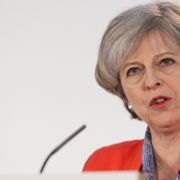Bianca Derhy is the international digital influencer behind Bibi Goes Chic. Covering a range of topics from fashion to travel, Bianca has a significant social media presence and is a rising Instagram star. We spoke to Bianca about her blog, making it big on Instagram and working with a network of PRs around the world.
How would you describe your blog?
My blog is a combination of what I love most: fashion, beauty, travel and luxury lifestyle. Specialising in the best of both, premium luxury and high-street fashion, Bibi Goes Chic aims to inspire women to style fashion-forward looks for different occasions through a combination of personal fashion posts, product reviews and trend tips – with professional photography to accompany each story.
What took your Instagram account to the next level in terms of followers?
Back in 2014, when I started blogging, growing on Instagram was definitely easier as public accounts gained more visibility. I think what worked best for me, and what continued to do so, was when I would get reposted on a popular accounts’ page. For example, if I would wear an outfit from Missguided and tag them, that picture could get shared on their page, driving a couple of hundred or even thousands over to mine. I definitely think interacting and collaborating with others on Instagram is a tool that works!
 What advice would you give someone trying to make it big on Instagram?
What advice would you give someone trying to make it big on Instagram?
I think nowadays, with Instagram’s algorithm having affected a lot of us in terms of reach and growth, big numbers isn’t everything. Rather, focus on creating amazing quality content, interacting with your followers, using the Stories and Live feature to get more personal, and the rest will follow!
How do your other social channels work with Instagram and your blog?
My main social media is definitely Instagram at the moment, as it serves as the main storyteller where I keep my viewers most up to date about what goes on in my life. I do love to blog when I feel like I have a lot to say about a particular topic, and feel like my readers would enjoy that depth a bit more. I’ve recently started YouTube where I film more about my university studies, lookbook and style tips, vlogs etc, so my readers can get to know me better.
What’s your favourite topic to blog about?
At the moment I’m loving writing about travel, as it’s been a passion of mine since I was young. I’m so grateful for each opportunity that comes my way, and having the ability to travel, see the world and immerse myself in a new culture is certainly an unforgettable feeling! I hope to capture that sensation as much as possible in my content on social media and my blog.
Who takes your pictures and what’s your process uploading content?
It definitely varies – if I’m collaborating with a brand or writing a blog post I would work with a photographer, yet I mostly use my iPhone 7 Plus for shooting daily content on the go (the quality is certainly up there and it’s the easiest tool we have!).
My process when it comes to shooting and uploading content is always to first brainstorm for new and exciting ideas I can share with my readers, whether that be for a blog post, Instagram photo or YouTube video. Once the content is created, I will use several editing tools such as Lightroom, and plan a schedule for when each post should go live. However, I always keep my content current and so most of what I post will have been shot that same week so my readers are most up to date!
What’s the next big trend going to be for influencers?
That’s a tough one! Instagram has just launched a polling tool, where viewers on Insta Stories can click which option they prefer between two things (say, do you prefer this Valentino bag or this Chanel clutch?) and see voting results live. I think surveys and testing is huge for both brands and influencers, and can help get a better insight into what our readers want to see from us in order to create more tailored experiences.
How do you like to work with PRs?
I love working with PRs and have a global network with them so that whenever I’m traveling, I’m still able to attend events and work with international brands. They also have loads of connections already built within the industry, and serve as a great introduction should you want to build a relationship with someone. Networking is definitely key!
What one thing should PRs know about you?
I would introduce myself as an international digital influencer, having grown up in the fashion capital of Paris and now living in another major fashion city, London. I’m also very passionate about what I do, and certainly motivated!
What other blogs do you read or vlogs do you watch?
I love to read, and am a big fan of popular blogs such as Chiara Ferragni (now turned into an e-commerce/digital magazine), but I am loving YouTube and regularly watch Kane and Pia, Jon Olsson and Clothes Encounters to name a few.
P.S. I also recently started a YouTube channel as well!
Bianca and her blog feature on the market-leading Vuelio Influencer Database along with thousands of other bloggers, influencers and journalists.











 What advice would you give someone trying to make it big on Instagram?
What advice would you give someone trying to make it big on Instagram?

 How does Marcel cope with the pressure?
How does Marcel cope with the pressure?








